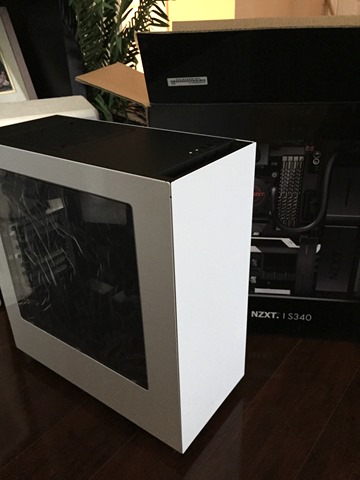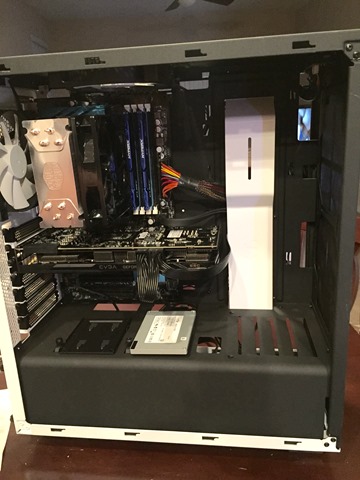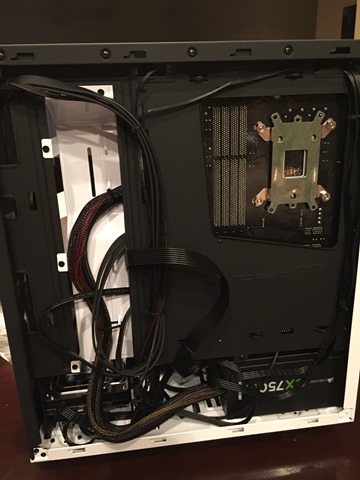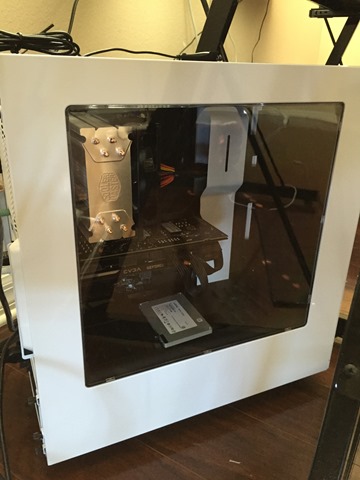You might have seen me mention it before, but my current main/gaming PC is around 7 years old. I really can’t complain though, because it has lasted and really hasn’t caused any problems until now. I built it then for around $600 or so, and it is the main PC I work with and play games on. The past couple of months it has been difficult to start and keep running efficiently, so it’s time to start looking at a new build.
In a previous post I mentioned I was looking at a Mini-ITX system with a Corsair Carbide case, but after reading about many of the issues people were having with fitting a GeForce GTX 970 in them, I decided to find something different. Yes, it could be done, but I don’t to worry about the hassles with it.
After more research and watching YouTube videos on it, I decided and purchased a NZXT S340 mid-tower case. It has lots of room, great cable management, simple design, and really doesn’t take up that much room.

Now for the rest of build:
The basic estimate for all this is around $1000. I don’t think it’s too extravagant or expensive for what I’m going for. The most expensive part is the video card, and while I could have gone cheaper I see no reason to as this is my main PC and what I will be gaming on for a while.
Right now I only have the case, so next is planning on how to acquire everything else and get it put together.
Update: Build is done!
I started the build on Friday night and spent several hours putting it together. Just took my time to make sure everything was right, and it came together fine.
Spent the rest of the weekend getting Windows setup and getting the most important apps installed and data moved over to the new PC.


